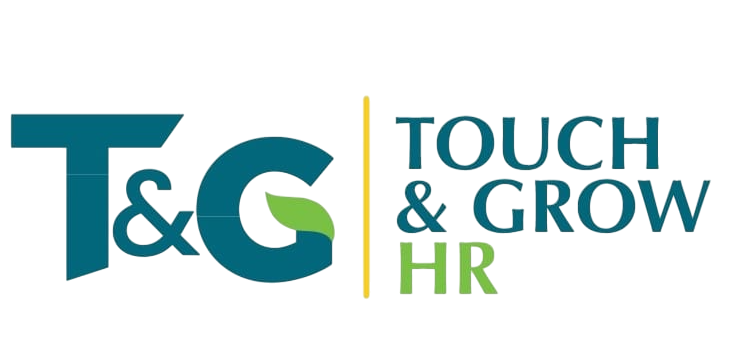Human Resources (HR) is no longer just about hiring, payroll, and benefits; it’s a dynamic, evolving field that plays a critical role in shaping a company’s culture and driving its success. As businesses adapt to a rapidly changing environment, HR practices are following suit, introducing new trends that align with emerging technologies, changing workforce expectations, and a focus on employee well-being. Let’s take a deep dive into some of the most impactful trends in HR today.
1. Embracing Artificial Intelligence and Automation
Artificial Intelligence (AI) and automation are no longer futuristic concepts—they’re here. HR departments are increasingly adopting AI-powered tools to streamline tasks like recruitment, onboarding, employee engagement, and performance management.
AI-driven recruitment tools are already revolutionizing hiring by screening resumes, conducting initial interviews, and predicting candidate success. This helps save time and reduces human bias in the hiring process, ensuring a more diverse and inclusive workforce. Additionally, chatbots and virtual assistants are making onboarding smoother, providing real-time answers to employee questions.
2. Remote and Hybrid Work Models
The COVID-19 pandemic drastically altered how businesses operate, with remote work becoming the norm for many. While some organizations have returned to in-office work, a significant portion has embraced hybrid or fully remote models.
This shift has forced HR teams to rethink traditional office-centric policies and practices. New trends include flexible work hours, virtual team-building activities, and hybrid performance management systems. HR professionals are also placing a stronger emphasis on trust and results rather than time spent in the office. Technology plays a crucial role in ensuring effective communication and collaboration among remote teams.
3. Employee Experience Over Engagement
While employee engagement has always been a priority for HR departments, the focus is now shifting to a more holistic approach—employee experience. This trend recognizes that engagement is just one part of a much broader picture that includes employee well-being, career development, and organizational culture.
HR professionals are increasingly focusing on creating a positive, inclusive, and supportive work environment where employees feel valued, heard, and empowered. This shift is driving more personalized approaches to performance management, feedback systems, and career progression, ensuring employees have a voice and a path forward in their careers.
4. Data-Driven HR
Data analytics is transforming HR practices across the board. By harnessing data from employee surveys, performance reviews, and productivity tools, HR teams can make more informed decisions. Predictive analytics can help anticipate employee turnover, identify skill gaps, and even forecast workforce trends.
Companies are also using data to assess the effectiveness of their diversity and inclusion initiatives, ensure equitable compensation, and track employee satisfaction. By adopting a data-driven approach, HR professionals can demonstrate the impact of their strategies and make improvements that align with business goals.
5. Wellness and Mental Health Initiatives
Employee well-being has taken center stage in the past few years, with HR departments prioritizing mental health and work-life balance. Companies are offering a wide range of wellness programs, from gym memberships to counseling services and mental health days.
But the focus is no longer just on physical health—emotional and mental health are also critical components of overall well-being. HR teams are being tasked with providing resources for stress management, mindfulness, and emotional support, as well as creating a culture where employees feel comfortable discussing mental health issues without stigma.
6. Diversity, Equity, and Inclusion (DEI) as a Core Value
Diversity, equity, and inclusion (DEI) have moved from being “nice-to-have” initiatives to a fundamental aspect of company culture and success. HR departments are working hard to build diverse teams, provide equal opportunities for growth, and create an inclusive environment where everyone feels valued.
Companies are taking a deeper dive into their hiring practices to ensure they aren’t unintentionally perpetuating bias, with a focus on fostering diversity in leadership roles and across all levels of the organization. This trend also extends to training, with more companies offering DEI workshops to promote awareness and sensitivity among employees.
7. Learning and Development with a Focus on Reskilling
The pace of technological change means that skill sets quickly become obsolete. To stay competitive, companies must continuously invest in reskilling and upskilling their employees. HR is taking on an even greater role in providing learning opportunities that help employees stay ahead of the curve.
Microlearning, digital learning platforms, and personalized development paths are on the rise, allowing employees to build new skills at their own pace and in a format that suits their learning style. There’s also a greater emphasis on leadership development programs, ensuring that future leaders are ready to navigate the evolving business landscape.
8. Agile HR Practices
The shift towards more agile, flexible, and adaptable working environments has inspired HR departments to adopt agile methodologies. HR teams are applying agile principles to everything from performance management to recruitment, using iterative processes to continually improve practices.
Agile HR focuses on collaboration, quick feedback loops, and responsiveness to changing business needs. This approach helps HR teams be more proactive and responsive in meeting the needs of employees and the organization as a whole.
Conclusion: HR is Evolving—Are You Ready?
HR is undergoing a profound transformation, driven by technological advancements, evolving employee expectations, and a greater focus on overall well-being. To stay ahead, HR professionals must be agile, data-driven, and proactive in embracing new trends.
By fostering a culture of inclusivity, continuously upskilling employees, leveraging technology to streamline operations, and putting employee well-being at the forefront, HR can drive positive change and contribute to organizational success in 2025 and beyond.
As we continue to navigate this new era of work, HR’s role will only become more central to shaping the future of organizations and the employees who make them thrive.

